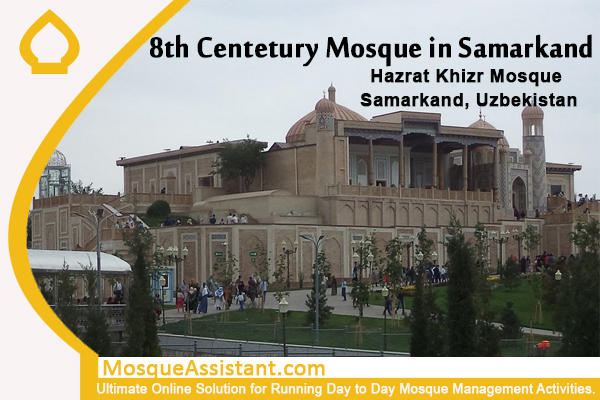
The Hazrat Khizr Mosque, located in Samarkand, Uzbekistan, has a rich historical lineage dating back to the Arab conquest of Sogd in the early 8th century. Legend has it that following the capture of Samarkand by Qutaiba ibn Muslim’s forces in 712, a trusted associate named Muhammad ibn Vasi erected the Hazrat Khizr Mosque on the grounds of a Zoroastrian temple previously revered by the Sogdians, situated at the southern edge of Afrasiab. Unfortunately, during the Mongolian conquest of 1220, the mosque suffered destruction.
The current iteration of the mosque emerged upon the foundation of its predecessor in 1854. Subsequent enhancements occurred in 1884, involving extensive renovation and expansion of the structure. By 1899, the mosque’s aywan (summer terrace) underwent reconstruction, and an entrance gate, known as the Darvazahana, was added. This comprehensive restoration and expansion project reached its culmination in 1919, marked by the construction of the entrance portal and the eastern minaret, skillfully executed by the renowned Samarkand master, Abduqadir bin Baqi (Abduqadir Baqiyev). Additionally, the Darvazahana entrance gate received a distinctive ribbed dome, adding to the mosque’s architectural splendor.
